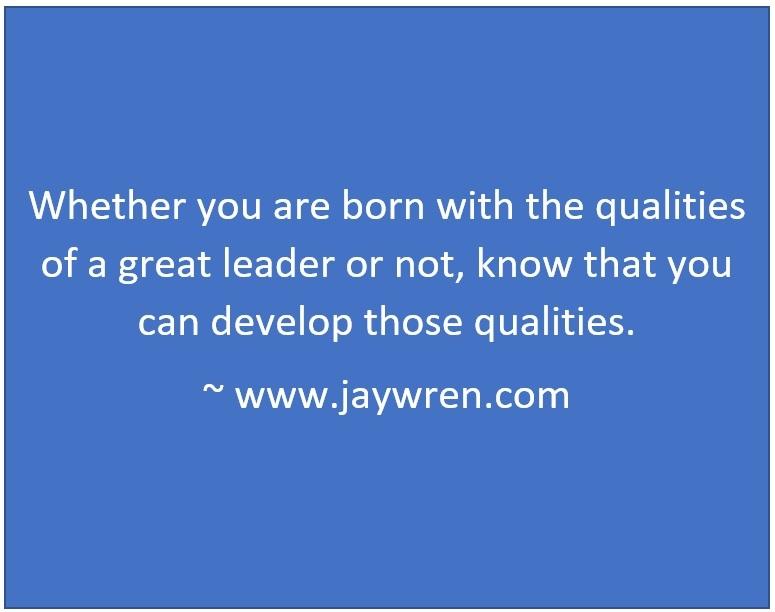Leadership Qualities: Some teams have a manager but still suffer from a lack of leadership. What qualities help leaders raise the team standards and increase team success?
Four Leadership Qualities that Create Great Teams
Leaders have many qualities that make them more effective. For example, a leader with charisma easily draws people to them and creates focus on what these leaders do and say. Leaders who are more intelligent and have greater experience help the team make better decisions.
Here are leadership qualities that you can claim today.
Self-honesty
Not just honesty, but self-honesty.
Self-honesty is about you recognizing and correcting your mistakes. It’s the honesty to recognize your weaknesses.
It is burying your ego so that you can accept the truths that stand between you and success.
To be successful takes more than overcoming lying, cheating, and stealing. For that matter, there are successful liars, cheaters, and thieves.
But even successful thieves benefit from honesty about their mistakes and their weaknesses. Otherwise, they will never become more effective, successful thieves.
Open-mindedness
A closed mind is the wall between ignorance and learning. It is also a wall between the shared intelligence of the team and the mind of a boss.
Of all the leadership qualities, open-mindedness might be the most important quality for creative, responsive teams.
Emotional Intelligence
First, learn to understand ourselves. Then we can begin to understand others.
Emotional Intelligence (sometimes abbreviated “EI” or referred to as Emotional Quotient “EQ”) is the ability to understand our own emotions as well as the emotions of other people.
People who have emotional intelligence know how to read people. They have an intuitive sense of why people do things and how to motivate people to do things. With a combined understanding of themselves as well as an understanding of others, these leaders can make decisions and take action with greater intelligence.
Ability to Grow
A final quality in this discussion is the ability to grow.
Leaders who continue to grow become a source of continuous growth for the team. Developing knowledge and skills, these leaders bring greater value to teams and increase the value of these teams to the organization. Effective new as well as tried methods, when introduced to the team, create both a greater understanding as well as more efficient ways of using new methods.
Leaders who develop the quality of continued growth can clear the clutter of methods that reduce the effectiveness of a team. Just knowing to evaluate procedures as time passes makes for greater effectiveness.
Teams that grow make the leap from short-term survival to long-term success.
